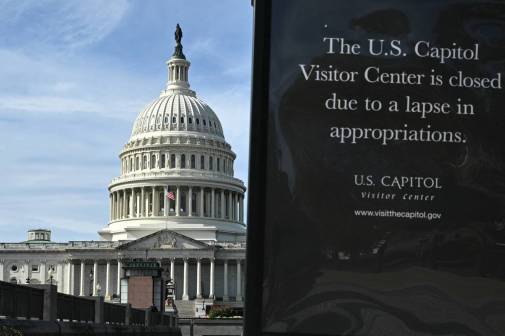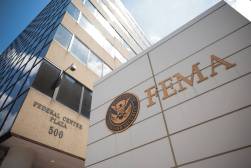How will federal shutdown affect relationship with states?

While the federal government shutdown came to an end Wednesday, a number of state leaders voiced their concern for the future of federal and state relationships after spending the past 16 days at the mercy of the shutdown.
At the core of the debate is the feeling the federal shutdown hampered state governments that have spent the past five years rebuilding themselves following the 2008 recession, along with denying states federal money for programs and services residents have come to count on.
“For much too long, Maine has relied far too heavily on federal dollars to fund many of our programs and services. This is unsustainable,” Maine Gov. Paul LePage said. “It is time to seriously question whether it is fiscally prudent to keep depending on the federal government when we know it’s unpredictable and unaffordable.”
State governments operate primarily from the revenue collected within their state, but receive federal funding to help implement an uncountable high number of programs ranging from SNAP (the relatively new acronym for food stamps) to paying local national guardsmen that help during disasters.
Colorado, who was hit last month with catastrophic flooding, was forced to make a difficult decision during the shutdown: find money in the state budget to continue to pay the National Guard to help with relief with no guarantee the feds would later pick up the tab or slow its recovery process.
In the end, Gov. John Hicklenooper decided to fund the guardsmen.
“We can’t afford to lose one day in rebuilding areas destroyed or damaged by the floods,” Hickenlooper said at the time. “Our National Guard troops are an invaluable part of the team working on the recovery. We need them to stay on the job.”
States along the Gulf Coast and the south Atlantic seaboard faced a similar situation earlier this month when Tropical Storm Karen threatened.
The end result was frustration for the states.
Another hot topic during the shutdown was the closing of federal lands such as parks and monuments. States, especially those with less dense populations, count on money brought in through those attractions for tourism to spur local business.
That was the case in Alaska where the U.S. Fish and Wildlife Service closed all refuge hunting and fishing opportunities until the government reopened.
The financial impact and inconvenience to Alaskans can no longer be ignored,” Alaska Gov. Sean Parnell wrote last week in a letter to Interior Secretary Sally Jewell.
For Hawaii, it was simply about keeping the financial momentum it had created after the 2008 recession.
“Like other states and counties, Hawaii was placed in a fiscally vulnerable position where benefits, programs and jobs were on the line,” Hawaii Gov. Neil Abercrombie said.
“Fortunately, the State of Hawaii has seen signs of our economy rebounding and, due to prudent management by this administration, we were equipped to weather the three weeks of the government shutdown. However, we do not want these circumstances to arise again, putting our progress in jeopardy. Since this ‘new deal’ will only be in place for a short term, we must remain vigilant regarding our finances.”
A number of states did furlough workers, primarily those whose salaries were paid for either fully or partially with federal funds. While those furloughs were a relatively small percentage of state workforces, those numbers were expected to grow greatly if the government shutdown extended into next month.
“Washington state escaped the most severe impacts that would have soon hit had Congress not acted, though the past two weeks have brought needless stress to many families here,” Washington state Gov. Jay Inslee said. “Fortunately, under the bill to reopen the government that was passed by Congress and signed by the president last night, Washington’s furloughed federal and state workers will be able to receive back-pay, and our state will receive reimbursement for the costs it incurred while continuing to operate important federal services, such as the administration of unemployment benefits.”






